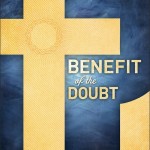We run our website the way we wished the whole internet worked: we provide high quality original content with no ads. We are funded solely by your direct support. Please consider supporting this project.

Are You Fully Alive? Here’s the Key
Image by rashdada via flickr.
The cross reveals the full truth about us. This truth reconnects us with our true source of life, which in turn heals our idol addictions. This dimension of the cross is frankly so breathtakingly beautiful that, so far as I can tell, very few followers of Jesus have ever really grasped it. And it contains the secret to living a fully alive life.
You know what something is worth to someone by what they are willing to pay for it. Consider, then, what God was willing to pay to redeem us and make us his bride. Out of his love for us, the all-holy God was willing to do nothing less than to go to the extremity of becoming our sin (2 Cor 5:21) and becoming our God-forsaken curse (Gal 3:13). Which means that God’s love for us led him to the extreme of somehow becoming his own antithesis. It means, in other words, that God gave us the perfect revelation of his true loving nature as well as the perfect revelation of his love for us by somehow becoming anti-God!
God could not have gone further than he in fact did to free us from our bondage and make us his bride. If the worth of something or someone to another is determined by what they are willing to pay to acquire it, then the fact that God was willing to pay the greatest price that could possible be paid can only mean that we have the greatest possible worth to God. The unsurpassable price God paid for us, in other words, means that we have unsurpassable worth to God.
Which means God could not possibly love us more than he actually does, and we could not matter more to God than we actually do.
Another way of saying this is to say that God loves us with the very same love that God eternally is. Calvary is what the love of the Trinity looks like when it encompasses us. Jesus reflects this truth when he prays that we would know that the Father loves us with the very same love he has for his own eternal Son (Jn 17:26).
We are not going too far if we conclude that God loves us with the same love he has for himself as Father, Son and Spirit. The God whose love led him to go to the infinite extreme of offering up his Son to become our sin and our God-forsakenness also gives us, as a result of this unsurpassable sacrifice, “all things”—including, full participation in the loving community that God eternally is (Rom 8:32).
The most remarkable aspect of God’s promise to always ascribe unlimited worth to us is that God promises this “while we were still sinners” and were positioning ourselves as his enemy (Rom 5:8, 10)! In fact, God made this promise precisely by becoming our sin and by standing in our place as a God-forsaken enemy! This clearly demonstrates that the unsurpassable worth God ascribes to us isn’t based on anything positive he finds in us, and it can’t be lessened by anything negative he finds in us. The cross rather demonstrates that God’s love for us, and our priceless worth to him, are completely based on God’s character, not ours. Even when we are in bondage to sin and are thinking, feeling, and/or acting like God’s enemies, we can trust that it remains as true as ever that we could not be loved more than we actually are, and could not matter more to God than we actually do.
There is nothing that fills my heart with a greater sense of joy, peace, and confidence than the realization that God’s perfect, unsurpassable, unwavering love for me is also unconditional. The person who has allowed this unconditional love to form the core of their self-identity is a person who will remain unshakable in their sense of being fully alive, regardless of what life may throw their way.
—Adapted from Benefit of the Doubt, pages 240-242.
Category: General
Tags: Benefit of the Doubt, Cruciform Theology, Fully Human, Life to the Full, Love, Love of God, Trinity
Related Reading

The Vicious Cycle of False Life
The serpent convinced Eve that she and Adam had been duped by God, and that God is actually unloving, untrustworthy, and threatened by what he forbids. The fullness of life they enjoyed through union with God was actually the ploy of a threatened deity that secures his position on top. The serpent was able to…

The Cruciform Beauty of Horrific Divine Portraits
“Only a person who is aware of the crucified Christ can properly understand Scripture.” Luther (Table Talks) In the last three posts I’ve been wrestling with how insights from Matthew Bate’s book, The Hermeneutics of the Apostolic Proclamation might help us interpret violent portraits of God in the OT in a way that discloses how…

Does God Inflict Physical Disabilities?
In Exodus 4, we find Moses claiming that he could not be used by Yahweh to get the children of Israel out of Egypt because he was “slow of speech and tongue.” To this Yahweh replies, “Who gave human beings their mouths? Who makes them deaf or mute? Who gives them sight or makes them…

Divine Accommodation in the Early Church
One of the basic points made in The Crucifixion of the Warrior God is that the Old Testament reveals how God adjusts his revelation and instructions to accommodate the weakness of his covenant people. This is actually not a new observation as is reflected in a variety of ways throughout Church history. For example, in…

Absolute Truth and Violence
A common argument today against Christianity is that believing that Jesus (or any other religious figure or religion) is the only way to God (See yesterday’s post) is “dangerous.” This claim actually has some justification, for it is undeniable that most of the butchery carried out throughout history has been done in the name of defending…

Rachel Held Evans Interviews Greg on Benefit of the Doubt
We shared an interview that Frank Viola did with Greg yesterday, and we’re thrilled to share an interview that Rachel Held Evans posted today. Rachel is very familiar with the resistance and criticism that comes when dearly held beliefs are challenged. We feel like she is a kindred spirit in this regard. We hope you’ll…
